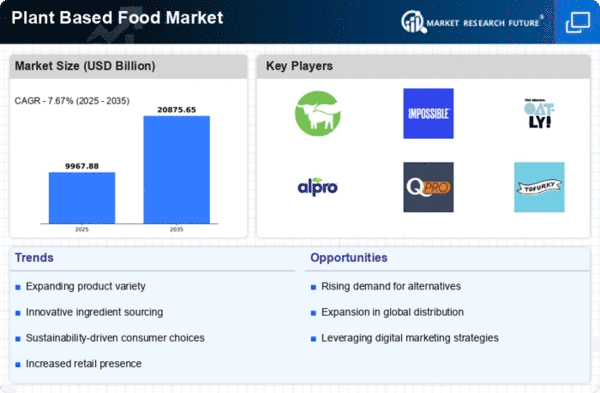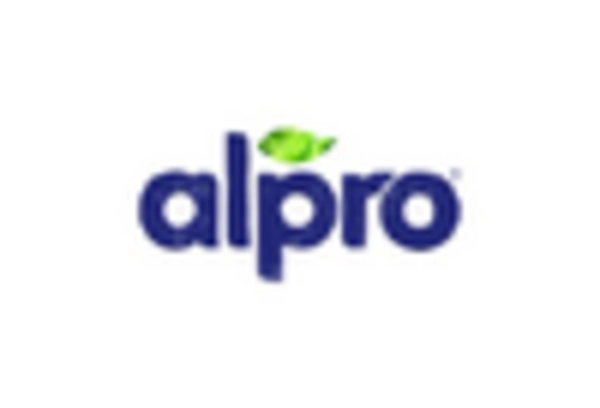Market Analysis
In-depth Analysis of Plant Based Food Market Industry Landscape
The dynamics of the plant-based food industry have significantly changed in recent years, reflecting consumers' growing need for more sustainable and nutritious food alternatives. The rising environmental consciousness and health-conscious cultures have coincided with a major increase in the demand for food produced in factories. The increasing number of customers opting for plant-based food because to concerns about animal welfare, individual health, and the environmental effect of traditional meat products is one of the major factors driving this transition. Market trends indicate that product innovations and immolations have exploded in the plant-based food sector. Businesses are spending a lot of money on research and development to create plant-based demand that almost exactly replicate the flavor and texture of conventional beast- grounded goods. Because of this, a variety of plant-based choices have emerged, including dairy products, shellfish, burgers and bangers, among others. The market's overall expansion is mostly attributed to the variety of product immolations, which cater to the diverse preferences and health situations of customers. The plant-based food industry has also seen a spike in partnerships and investments, which suggests that investors are confident in the industry's potential for long-term growth. In order to capitalize on one another's advantages in product development, distribution, and marketing, both startup and established food firms are forging strategic alliances and collaborations. In addition to spurring innovation, this collaborative approach is reducing the vacuousness of plant-based goods in mainstream retail establishments and increasing their accessibility to a wider range of consumers. Consumer awareness and education are key factors in determining how the plant-based food industry operates. Customers are becoming more knowledgeable about the effects of meat products on the environment, the health advantages of meals around factories, and the moral issues surrounding the husbandry of animals. Customers are starting to include plant-based products into their daily routines and reflections, which has led to a rising acceptance of these options as a result of the increasing consciousness. The dynamics of the plant-based food market on factories are also being influenced by government initiatives and programs. Certain governments are providing incentives and backing to companies that provide plant-based and sustainable food products. Additionally, laws and standards for labeling plant-based food are changing to guarantee transparency and win over customers. The food market with a manufacturing base is benefiting from these advances by creating a more advantageous nonsupervisory environment. There are still issues with the dynamics of the market, as some customers express uncertainty regarding the nutritional content and flavor of plant-based demand. Overcoming these obstacles necessitates constant sweating in research and development to improve the delicate qualities of plant-based food and inform customers about their nutritional advantages. Additionally, obtaining a wider customer base continues to depend on the cost and accessibility of plant-based choices, particularly in developing regions.


















Leave a Comment